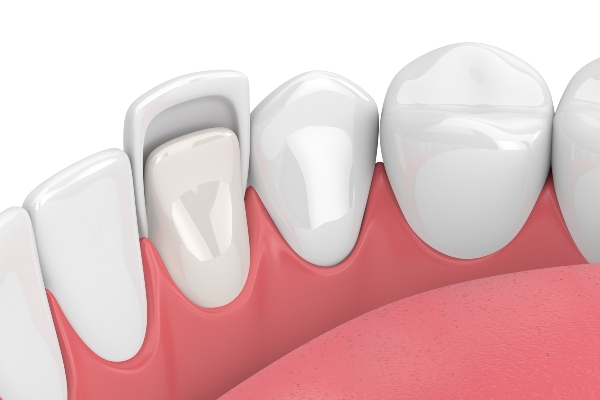 Dental veneers can improve your dental health. Your dentist can present many types of this dental restoration. Understanding the types of veneers available can broaden your options. Here are the different types of dental veneers that you must consider.
Dental veneers can improve your dental health. Your dentist can present many types of this dental restoration. Understanding the types of veneers available can broaden your options. Here are the different types of dental veneers that you must consider.
Porcelain veneers
These are the most common types of dental veneers. The material in these restorations is feldspar, which is a natural glass ceramic. That is why these veneers are also called feldspathic porcelain veneers. They are translucent and thin, allowing them to give a natural appearance.
These dental veneers are not easy to chip or stain. That is why these restorations can last longer than other types of veneers. The tooth preparation is quite lengthy. The application of these veneers also tends to take some time.
Permanent veneers
The dentist may recommend lasting veneers. These restorations can improve and protect teeth for 10 to 20 years. Research shows that these are the most expensive dental veneers on the market. These shells are also the most lasting and natural-looking as well.
Lithium disilicate glass-ceramic veneers
The durability, strength, and aesthetic quality of these restorations make them popular. A 2017 study showed that these shells can last for at least 10 years. Proper care and maintenance can make this possible. The shells are translucent, allowing them to blend well with the natural teeth. These veneers are also stain-resistant and easy to maintain.
No prep veneers
A patient can get these dental veneers in one dental visit. These restorations are also called minimal-prep veneers. Getting these restorations is a cosmetic treatment. The dentist will attach these compact, thin shells in no time. An individual who wants a quick fix for stained, chipped, or misshapen teeth can get these restorations. This treatment is for people who do not want invasive dental treatments.
Zirconium veneers
Dentists often recommend these dental veneers for dental fractures, decay, and chipping. These restorations are made of one of the most durable materials in restorative dentistry. The active ingredient is zirconium dioxide, which is the most resistant monolithic ceramics. These thin shells are opaque because there are no other materials added to them. Zirconium veneers are good for providing the highest level of strength to teeth. They are ideal for rebuilding damaged teeth as well.
Same-day veneers
These dental veneers need one day to design, prepare, and apply. Clinics with CAD/CAM technology can provide these restorations. The dentist will prepare the tooth first. The digital scanning of the tooth will follow. The automated machine will create the veneers on the same dental visit.
Composite veneers
An individual who wants a quicker alternative to porcelain veneers can have less expensive composite ones. Resin is the main tooth-colored component of these thin shells. These restorations are ideal for the front teeth. The resin is too weak for the back teeth that are for chewing.
Clip-on or pop-on veneers
These removable veneers do not need any tooth preparation. An individual can choose either custom clip-on or non-custom clip-on veneers. Custom clip-ons are available in composite resin and porcelain and are easy to put on. Proper dental care practices are necessary to maintain custom clip-ons. Non-custom clip-ons do not need tooth preparation or dental visits. These veneers are available at local pharmacies.
You can get the facts about the different types of dental veneers from your dentist
A veneer treatment from your dentist will give you the results that you need and want. A proper dental assessment will come first. Then, your dentist will see what type of dental veneers can fit your teeth and budget. Working with your dentist will allow you to maximize the use of your veneers so that they can last for years.
Request an appointment or call R. David Brumbaugh, DDS at 214-306-4402 for an appointment in our Dallas office.
Related Posts
Dental veneers may be the most effective option to repair uneven, misshapen, or broken teeth. They can also help reduce gaps in the teeth. Traditional veneers come in two main types: porcelain and composite resin. While both can help you achieve that movie-star smile, they have some differences. This article will explore both porcelain and…
Getting dental veneers can improve your smile. These thin shells can also protect the treated teeth. Your dentist can determine if you can have this treatment. Here are the details to see if you are a candidate for dental veneers.The enamel can thin out because of sweet and acidic foods and drinks. Hard brushing can…
Dental veneers are versatile restorations. Your dentist can improve the health and appearance of your teeth by applying these custom-fit shells. Talking to your dentist about the procedure can motivate you to set your treatment schedule. Here are the pros and cons of getting your dental veneers.Dental veneers can be a good choice for dental…


